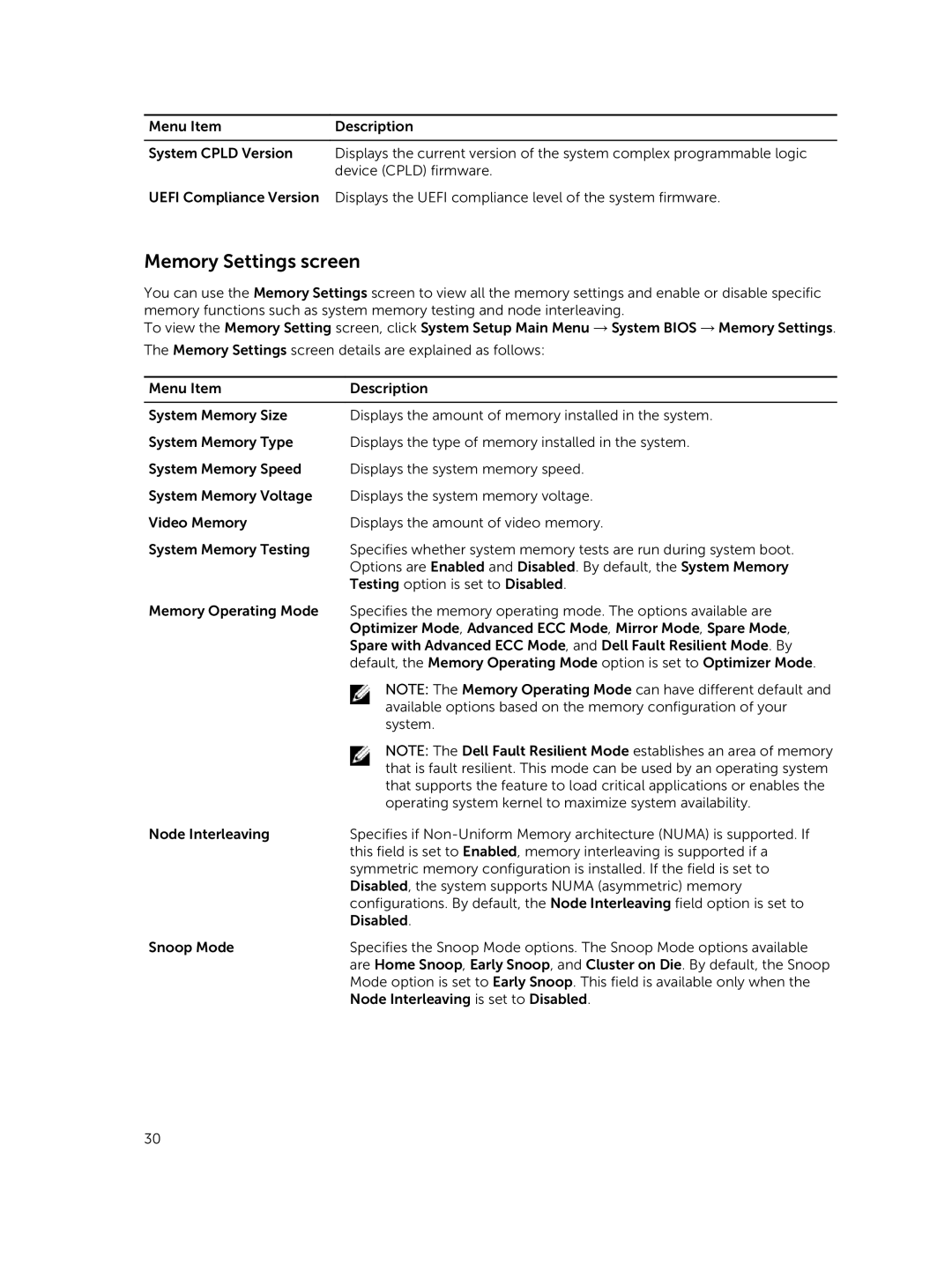
Menu Item | Description |
|
|
System CPLD Version | Displays the current version of the system complex programmable logic |
| device (CPLD) firmware. |
UEFI Compliance Version | Displays the UEFI compliance level of the system firmware. |
Memory Settings screen
You can use the Memory Settings screen to view all the memory settings and enable or disable specific memory functions such as system memory testing and node interleaving.
To view the Memory Setting screen, click System Setup Main Menu → System BIOS → Memory Settings.
The Memory Settings screen details are explained as follows:
Menu Item | Description |
|
|
System Memory Size | Displays the amount of memory installed in the system. |
System Memory Type | Displays the type of memory installed in the system. |
System Memory Speed | Displays the system memory speed. |
System Memory Voltage | Displays the system memory voltage. |
Video Memory | Displays the amount of video memory. |
System Memory Testing | Specifies whether system memory tests are run during system boot. |
| Options are Enabled and Disabled. By default, the System Memory |
| Testing option is set to Disabled. |
Memory Operating Mode | Specifies the memory operating mode. The options available are |
| Optimizer Mode, Advanced ECC Mode, Mirror Mode, Spare Mode, |
| Spare with Advanced ECC Mode, and Dell Fault Resilient Mode. By |
| default, the Memory Operating Mode option is set to Optimizer Mode. |
| NOTE: The Memory Operating Mode can have different default and |
| available options based on the memory configuration of your |
| system. |
| NOTE: The Dell Fault Resilient Mode establishes an area of memory |
| that is fault resilient. This mode can be used by an operating system |
| that supports the feature to load critical applications or enables the |
| operating system kernel to maximize system availability. |
Node Interleaving | Specifies if |
| this field is set to Enabled, memory interleaving is supported if a |
| symmetric memory configuration is installed. If the field is set to |
| Disabled, the system supports NUMA (asymmetric) memory |
| configurations. By default, the Node Interleaving field option is set to |
| Disabled. |
Snoop Mode | Specifies the Snoop Mode options. The Snoop Mode options available |
| are Home Snoop, Early Snoop, and Cluster on Die. By default, the Snoop |
| Mode option is set to Early Snoop. This field is available only when the |
| Node Interleaving is set to Disabled. |
30
